The Dark Truth Behind Ibrahim Traore Coup Exposed
The Collapse Before Ibrahim Traore Coup
Long before Captain Ibrahim Traore made international headlines, Burkina Faso was already on the brink of collapse. The country had been hemorrhaging from years of terrorism, extreme poverty, and a hidden war largely ignored by the global community.
This war was not just a fight
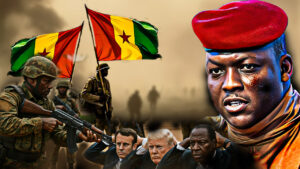
against terrorism. It was a deeper conflict over control of the nation’s gold-rich lands. Foreign interests, private military contractors, and complicit African leaders played pivotal roles in this struggle. Tragically, it was civilians who paid the highest price, dying under the guise of counterterrorism efforts in a battle over resources they never truly owned.
Mainstream coverage focused on the headline: a young army captain ousted Paul Henri Damiba and seized power. But the story behind Traoré’s rise is far more complex. This blog explores the deeper layers.
Ibrahim Traore: A Leader Born from a Broken System
Captain Ibrahim Traore didn’t rise to power out of ambition. He stepped in because the system had failed. The government was riddled with corruption, more invested in foreign approval than in protecting its own citizens.
Who Is Ibrahim Traore?
Born in 1988 in Bobo-Dioulasso, Burkina Faso’s second-largest city, Ibrahim Traoré grew up in the ideological shadow of Thomas Sankara—a revolutionary who once pushed for national self-reliance. Despite Burkina Faso’s gold wealth, the country remained entrenched in poverty, a contradiction that deeply influenced Traoré.
He studied geology at the University of Ouagadougou and enlisted in the military in 2010. Although reserved during his school years, he was politically conscious. His military experience in northern Burkina Faso exposed him to chaos: jihadist groups were killing civilians and displacing millions.
Colleagues described him as courageous and highly disciplined but deeply frustrated. He witnessed soldiers sent into battle with minimal resources, while politicians enjoyed a life of luxury.
By early 2022, Traoré commanded an artillery unit in Kaya, a strategic northern city. There, he saw the government’s failures firsthand and lost confidence in Damiba, who had promised reform but instead aligned with France.
Damiba’s pledges to restore security proved hollow. Violence escalated, and the state lost control of over 40% of its land. In response, Traoré quietly assembled a group of disillusioned officers.
By September 2022, they executed their plan. This was more than a coup; it was a rejection of watching the nation bleed in vain. At just 34, Traoré became the world’s youngest head of state.
Yet his actions went beyond deposing a regime. He was challenging a shadow empire that had long manipulated Francophone Africa.
The Legacy of Thomas Sankara
Before Ibrahim Traore, there was Thomas Sankara. In 1983, Sankara seized power through a military revolution grounded in purpose, not ambition.
He renamed Upper Volta to Burkina Faso—”Land of Upright People”—and led an aggressive drive toward African self-sufficiency. Sankara rejected IMF loans, nationalized resources, slashed government salaries, empowered women, and drastically improved healthcare and infrastructure.
However, his push for economic independence from France proved fatal. Declaring African debt a modern form of slavery, he famously said, “We do not owe you; you owe us.”
The global response was silence. Then came his assassination in 1987, orchestrated by Blaise Compaoré—his closest ally.
Gold Theft in Broad Daylight
Burkina Faso ranks among Africa’s top gold producers, yet it remains one of the continent’s poorest nations. This is not by accident—it’s systemic.
Over 60 metric tons of gold are mined annually, valued in the billions. Still, the average Burkinabé gains little. The bulk of the wealth flows to mining companies from France and Canada, such as Endeavour Mining, IAMGOLD, and Semafo.
Thanks to deals brokered under leaders like Compaoré, foreign firms pay minimal taxes, face no tariffs on equipment, and repatriate profits. Local communities, meanwhile, deal with poisoned water, environmental degradation, and broken promises.
Even amid jihadist attacks, mining never stopped. In fact, violence benefited mining operations by forcing villagers out of resource-rich zones, later designated as “security zones.”
France’s military involvement, allegedly to counter terrorism, happened to align with these profitable gold corridors. What appeared to be defense was often mere protection of gold routes.
Captain Ibrahim Traoré saw this clearly. He stated, “We want our resources to benefit our people.” Since taking office, he has begun canceling exploitative contracts and forging partnerships with non-Western allies.
For Western powers, Traoré is not just a rebel—he’s a financial threat. This struggle is not about democracy or security; it’s about gold.
A Broader Movement Across Francophone Africa
Burkina Faso’s shift is part of a wider regional awakening.
Mali set the precedent. In 2021, Colonel Assimi Goïta led a coup, expelled French troops, and replaced colonial-era education with local alternatives. Russia’s Wagner Group filled the vacuum left by France.
Guinea followed under Colonel Mamady Doumbouya, rejecting IMF strings attached to loans. In 2023, Niger joined the wave when General Abdourahamane Tchiani overthrew the government and criticized exploitative uranium deals with France.
Ibrahim Traoré is part of this emerging cohort of military leaders. Young, independent, and deeply frustrated by neocolonialism, they are uniting.
In September 2023, Burkina Faso, Mali, and Niger formed the Alliance of Sahel States (AES) through the Liptako-Gourma Charter. This mutual defense pact is not just military—it’s a declaration of sovereignty.
AES is challenging ECOWAS, ditching the CFA franc, and signaling that Africa is reclaiming control.
Russia, Wagner, and the Shift in Global Power
France’s withdrawal left a power void, quickly filled by Russia. Unlike the West, Russia came without conditions or lectures. Through the Wagner Group, it offered security and partnerships.
Speculation arose around Wagner’s presence in Burkina Faso. While Western critics decried foreign interference, they ignored years of France’s own military and economic imposition.
Ibrahim Traore neither confirmed nor denied Wagner’s involvement. Instead, he recalibrated the power dynamic.
He reestablished ties with Russia, boosted trade with China, and expelled French diplomats and troops.
To Western powers, this shift resembled Cold War maneuvering. But to many Africans, it represented genuine independence.
Russia offered weapons, deals, and respect for sovereignty—not ideologies. Traoré and his peers are not Kremlin puppets. They are pragmatists seeking autonomy in a multipolar world.
He doesn’t cite Lenin. He quotes Sankara. This is not a nostalgia-driven movement. It is a strategic step toward a self-determined future.
A New Era for Africa
The transformation unfolding in Burkina Faso transcends politics. It is historical, emotional, and generational.
Captain Traoré and leaders like him are spearheading a long-overdue reckoning. They are rejecting six decades of masked exploitation. And this time, they are not asking for permission.
They possess the will, the weapons, and most importantly, the support of their people.
This is not just about gold, France, or Russia. It’s about Africa finally reclaiming what has always been its own.
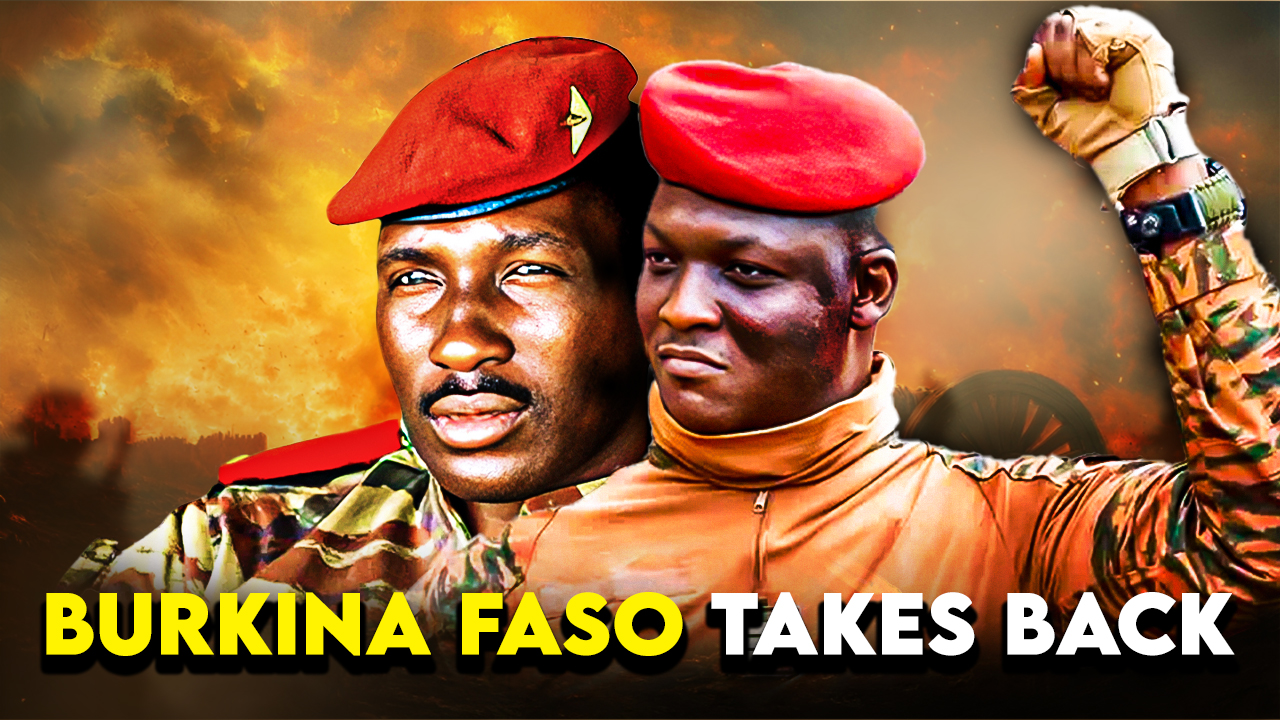
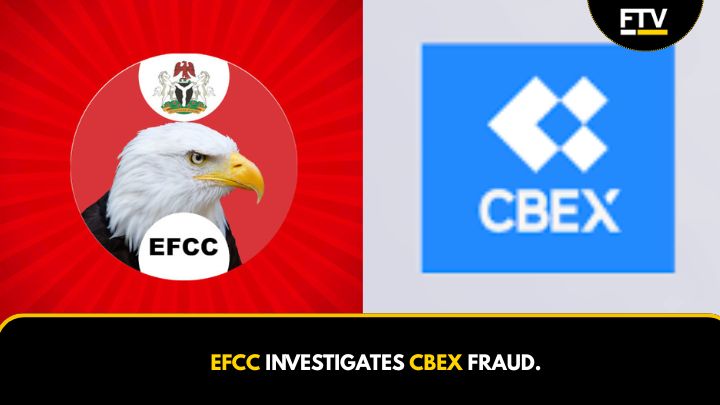




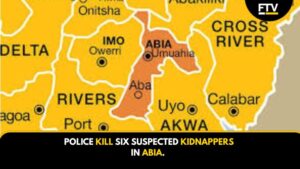


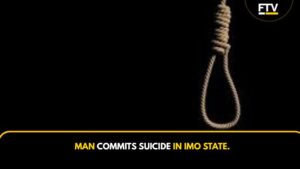


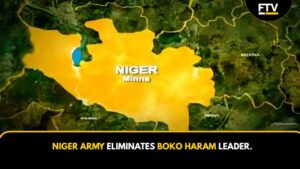

Post Comment